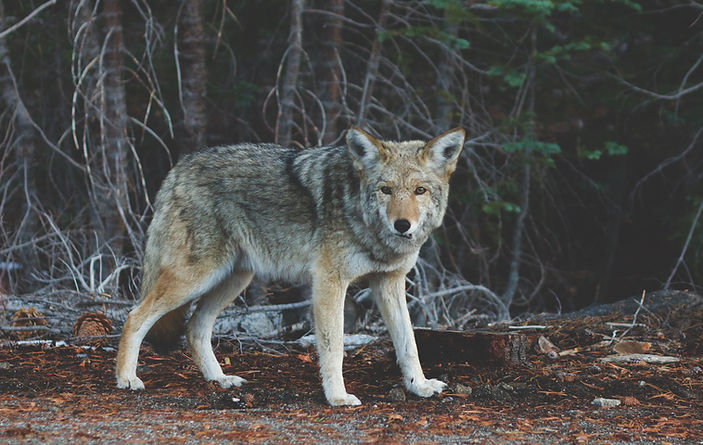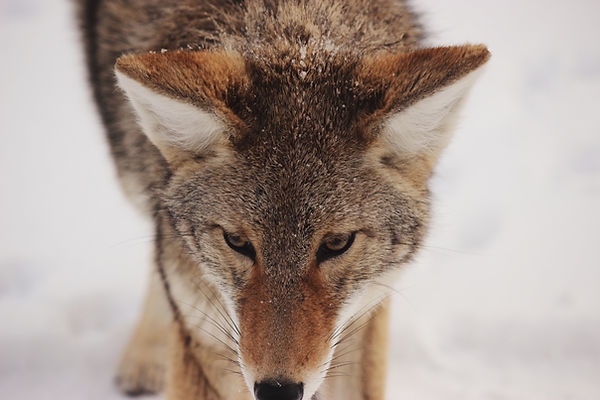
ERADICATE BOUNTIES
Most people believe that bounties are a part of Canada's dark past. However, there are provincially approved bounties underway, where people are paid a financial reward for killing wolves and coyotes in British Columbia, Alberta, and Ontario.
A growing body of empirical evidence indicates that bounty programs are not effective in achieving their intended outcomes. In particular, they have not demonstrated success in significantly reducing livestock predation. Moreover, such programs can lead to increased conflict levels and encourage fraudulent activity and the unnecessary killing of wildlife for financial gain.
Read this peer-reviewed paper by Gilbert Proulx and Dwight Rodtka about how Predator Bounties in Western Canada Cause Animal Suffering and Compromise Wildlife Conservation Efforts.
Records obtained through the Freedom of Information Process show that in Bonnyville, Alberta, where a bounty is offered on both wolves and coyotes, at least 3,439 coyotes and 78 wolves were killed during 2020-2024, at a payout of $60,210. In 2024, one person turned in 178 coyotes . In 2020, one person claimed 151 coyotes.
Similarly, during 2020-2024 Big Lakes, Alberta, spent $67,750 killing 271 wolves.
Instead of wasting money on cruel and ineffective bounty programs, funds should be redirected to help support community programs, and individuals, to pro-actively prevent conflicts using ethical and evidence-based tools and methods.
backgrounder_Wolf & Coyote Bounties today
Bounties are carried out at the local government government level, although they are technically permitted under provincial jurisdiction, as Fish and Wildlife management is primarily a provincial and territorial responsibility in Canada, with each province or territory having its own regulations. Neglectfully, there is little to no provincial oversight provided on the bounties underway.
In Alberta and Ontario, there are several municipalities where people are rewarded from $50 - $500 for bringing in a dead wolf or coyote, or evidence thereof (e.g. ears). Thousands of wild canids are killed in these programs each year. Many of the wolves and coyotes turned in for reward money have not killed livestock, and most likely never would.
Public bounties are usually carried out under the guise of managing livestock losses to predators, but empirical evidence shows that the lethal removal of predators and mesopredators often has no effect and can lead to more problems.
In contrast, pro-active methods and tools that are non-lethal have proven to effectively reduce predation on livestock, and leaders in the industry are successfully using these techniques.
Learn more through peer reviewed-studies shared on our page Coexisting: Livestock, People and Predators.
legal Killing contests
British Columbia, Alberta, and Ontario also allow killing contests, where public are rewarded for the number, size and type of wolves or coyotes they kill.
Sometimes domestic dogs are killed in these contests too.
Providing incentives to kill predators is archaic, expensive, ineffective and unethical.
WeHowl does not understand why these practices continue to be allowed, do you?

